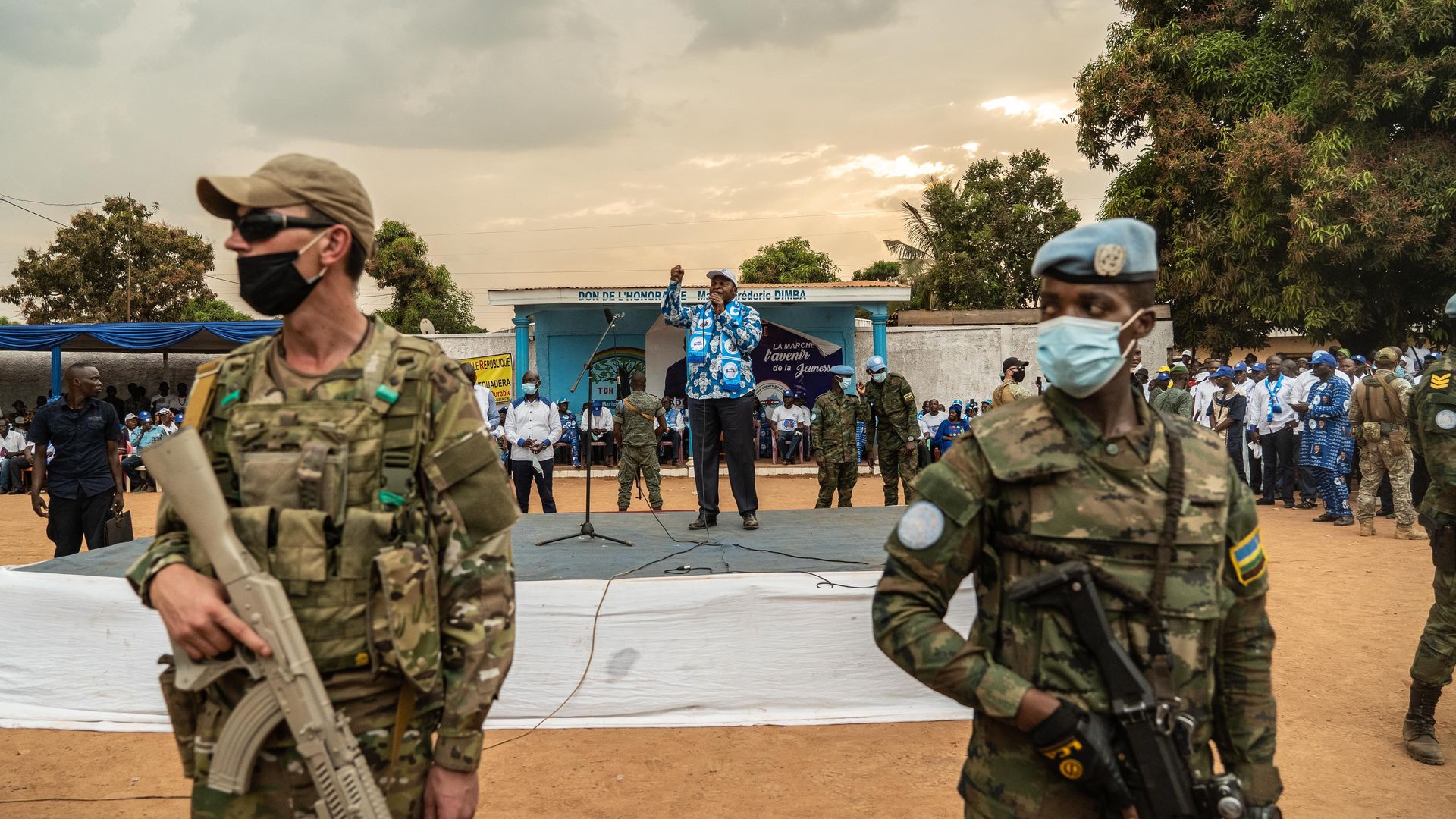Dec 16, 2020 - World
Facebook takes down dueling French, Russian online influence campaigns in Africa
Add Axios as your preferred source to
see more of our stories on Google.

Faustin-Archange Touadera, president of the Central African Republic, gives a speech at a campaign rally in Bangui, Central African Republic, Dec. 12, 2020. Photo: Xinhua/André Bâ via Getty Images
